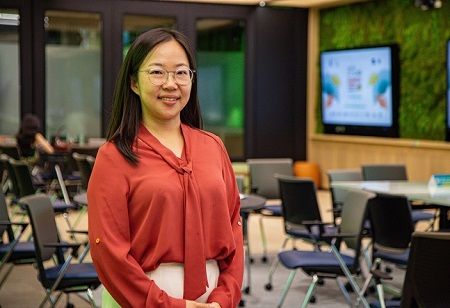Tella, a South Korean company specializing in English-language education technology, announced plans to establish a remote work agency catering to Filipino workers. “Although we’ve had made some success in the mission and the business side, we’re now looking into the next phase of diversifying our business portfolio”, Tella Co-Founder and Chief Executive Officer Yuha Jin told on the sidelines of the United Nations Development Programme’s Youth Co: Lab forum last week.
Established in 2014, Tella initially aimed to offer online English tutoring opportunities to individuals from the Philippines and Uganda. Now serving 100,000 users across 60 countries, the company plans to expand by outsourcing remote work to users in these countries, enabling better client service across different time zones, according to Ms. Jin.
“If we’re just focused on one industry (English language tutoring), there’s a limit to how many jobs that we can directly create. Whereas, if we’re the agency or the platform to connect the talent to a variety of businesses, then there can be way more opportunities”, Ms. Jin said.
Ms. Jin added that Tella aims to assist up to one million jobseekers through its platform. The company is also planning to launch a startup accelerator to provide funding, mentoring, and connections for digital and IT startups from the Philippines and Uganda, facilitating partnerships with international investors. “Young people have even better skill sets these days,” she said. “But in terms of entrepreneurship, like having industry insight or having network or connections, it doesn’t come at a young age”.
According to the World Bank, the Philippines, boasting one of the youngest working populations in East Asia-Pacific, has a 25-year opportunity to leverage its agile workforce. To harness maximum economic benefits, the country must focus on investing in health, skills, and knowledge development. “Investors or government need to know where and who to invest in — the right people and right industries”, Ms. Jin said.
Gerd Trogemann, manager of the Regional Programme and Global Policy Network at the UNDP's Regional Bureau for Asia and the Pacific, emphasized the importance of supporting startups led by youth. “It is important to think about youth because it tells you where you need to make adjustments in terms of policy, regulations, and in creating opportunities for the next generation,” he said. “Policy is not made in a vacuum; it needs to be applied in reality”, Beatriz Marie D. Cruz

